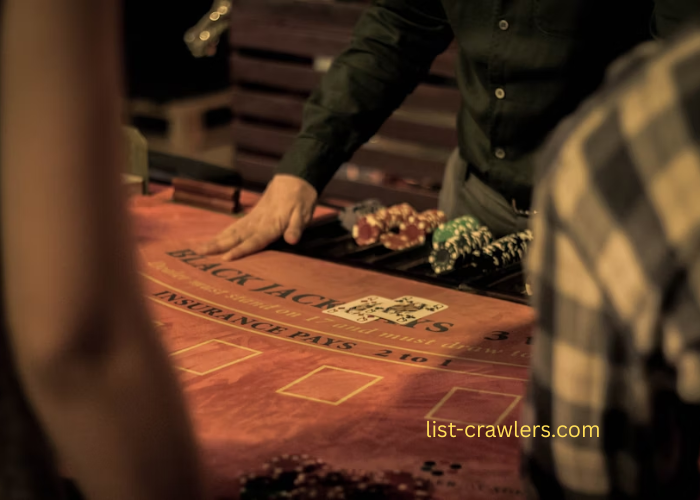Online blackjack has become one of the most popular ways to play cards for real money. With just a few clicks, you can join a table, place bets, and watch the action unfold in real time Single Deck vs. Multi-Deck.
The rules look familiar, the gameplay feels fast and convenient, and it’s easy to think all blackjack games online work the same way. But you’ve probably seen options for single-deck and multi-deck tables. Most players pick one without thinking twice.
If you’re new to blackjack, understanding this difference can help you avoid costly mistakes and give you a better chance to succeed right from the start.
Number of Decks
The most basic difference between online blackjack games is simply the number of decks used to deal the cards. Single-deck blackjack uses a single, standard 52-card deck. Once all the cards are dealt, the deck is reshuffled before the next round begins.
Multi-deck blackjack, on the other hand, combines several decks shuffled together in a shoe. Most online casinos use four, six, or eight decks for these games. This means there are hundreds of cards in play at once instead of just fifty-two. The larger number of decks changes how the game is set up and how the cards are managed between rounds.
Blackjack Payout (Single Deck vs. Multi-Deck)
One of the most important details to consider when you play blackjack for real money is the payout you receive when you hit blackjack. This payout plays a significant role in your overall returns. In most online multi-deck games, the payout is the traditional 3:2, so a $10 bet wins $15 when you get a natural blackjack.
In many single-deck games, the payout is listed as 6:5, which means the same $10 bet pays $12 instead. While this difference may seem small per hand, over time it has a noticeable impact on your results. The 6:5 payout increases the house edge by about 1.4%, which means you should always pay attention to this rule when choosing a table.
Even though single-deck games have appealing odds in other areas, the payout structure can change the overall value of the game. It’s a good habit to check the payout details before you start playing so you can make an informed choice that matches your goals and playing style.
House Edge
The house edge is the built-in advantage the casino has over players in the long run. In blackjack, games with fewer decks usually come with a lower house edge. This is because players get blackjacks slightly more often, and the effect of removing certain cards has a bigger impact on the remaining deck. The deck composition also changes more noticeably from hand to hand. Under standard rules, where blackjack pays 3:2 and the dealer stands on soft 17, here’s how the house edge compares:
- Single-deck: about 0.17%
- Double-deck: about 0.46%
- Six to eight decks: about 0.65%
Although these percentages may seem small, they can make a significant difference over time. A lower house edge means better long-term odds and a higher chance of keeping more of your winnings.
Probability of Blackjack
The probability of getting a blackjack is quite higher in single-deck games compared to multi-deck versions. In a single-deck game, the chance of being dealt a natural blackjack is about 4.82%, or roughly 1 in every 20.72 hands. In a six-deck game, the probability drops to around 4.74%. While this difference may seem minor on paper, over time, it means that blackjacks will appear a little more frequently in single-deck play.
This higher frequency is a direct result of having fewer cards in circulation. With only one deck, the proportion of aces and ten-value cards remains higher compared to a larger shoe with several decks combined. For players who enjoy the excitement of getting a blackjack, this can make single-deck games feel slightly more rewarding and engaging. Hitting a natural blackjack not only provides an immediate payout but also breaks up the rhythm of regular hands, adding variety to the game experience.
That said, the increased probability alone doesn’t guarantee a significant advantage, especially if the table uses a 6:5 payout instead of the traditional 3:2. The impact on overall results is relatively small. Still, it contributes to the subtle differences between formats. It’s simply one more detail to be aware of when you’re comparing single-deck and multi-deck tables and deciding which version suits your preferences and playing style.
Which Should Beginners Choose?
Single-deck and multi-deck blackjack each have their characteristics. Single-deck games typically offer slightly better odds but may come with different payout rules and faster gameplay. Multi-deck games are more common online and usually follow standard rules that are easy to learn.
For beginners, understanding these differences is helpful, allowing you to choose the version that best suits your preferences and comfort level. Whichever you pick, knowing how deck count affects the game will make it easier to play confidently and make informed decisions.







